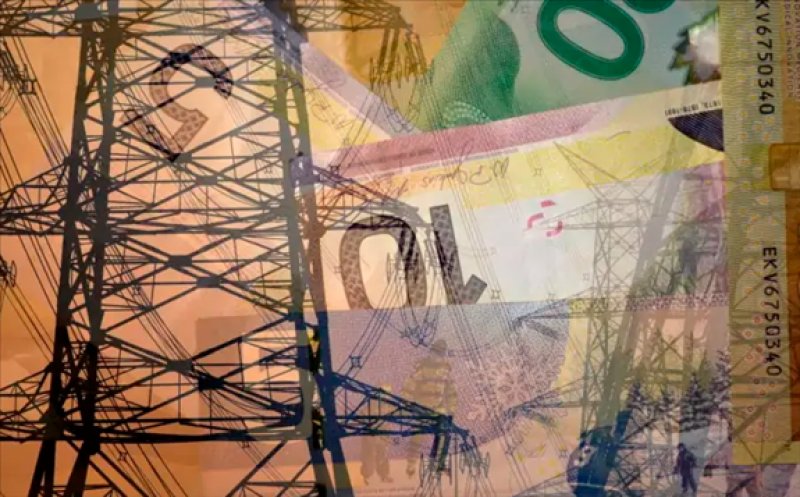Companies in Bosnia and Herzegovina, and Serbia have received announcements from their suppliers that the price of electricity would increase as high as 70-135 percent. If new prices become a reality, companies will have to lower production, lay off workers, and increase the price of goods and services they sell to the market.

The staggering rise of the electricity prices in recent months has flooded entire Europe, and the main reasons are the prices of CO2 emissions and natural gas. Prices on the power exchanges currently range from EUR 90 to 200 per MWh. On Serbian electricity power exchange SEEPEX, the price has increased by almost 80% since the beginning of the year, and the day-ahead price stands at EUR 174 per MWh. Companies in Serbia and BiH do not buy electricity on exchanges, but the price is not regulated like for households.
Companies in the region felt the first blow in June, but the price hike in power exchanges continued, so it was just a matter of time when it would spill over again to bilateral contracts.
In BiH and Serbia, state-owned utilities Elektroprivreda BiH (EPBiH) and Elektroprivreda Srbije (EPS) are the main suppliers.
Some European countries have started to introduce measures to help the corporate sector.
In an interview with Balkan Green Energy News in August, when annual price growth was already around 60%, Dejan Stojčevski, chief operating officer of Serbian power exchange SEEPEX, warned that businesses that buy electricity on the free market have reasons for concern.
“Consumers who have long-term agreements for this year and next will not be affected by the price hike, but those who purchase electricity through short-term contracts, and in the second half of the year for the following year, will face problems. Those consumers who concluded agreements for next year in March or April this year are not affected because the price at the time was about EUR 60,” said Stojčevski.
The question now is how or whether the governments will react. A tax has already been introduced in Spain to provide funds to help consumers. Bulgaria has proposed measures for companies, while a similar plan is in the pipeline in Romania.
Employers’ association of the Federation of BiH: prices jumped 70-120%.
Representatives of the association of employers of the Federation of Bosnia and Herzegovina UPFBiH and the representatives of power utility Elektroprivreda BiH (EPBIH) agreed the announced increase in electricity prices is unsustainable and that it would have unforeseeable consequences for the economy, as well as for citizens.
The two sides meet to discuss a drastic increase in the price of electricity, ranging from 70 to 120 percent.
If the electricity price goes up, the price of goods and services will also increase.
They have agreed it is necessary to include representatives of the Government of the Federation of BiH in the talks and organize a joint meeting tomorrow between the representatives of UPFBiH and EPBiH with Federal Prime Minister Fadil Novalić and Minister of Energy, Mining and Industry Nermin Džindić.
The association emphasizes the announced increase in electricity prices would affect the economy, which has just begun to recover from the COVID-19 pandemic, and the citizens because higher electricity prices would result in higher prices for goods and services.
The association said it would back only a single-digit increase in electricity prices.
Serbia: prices rallied as much as 135 percent
The situation is similar in Serbia. According to news website N1, representatives of companies in the city of Kragujevac sent an open letter with a warning that power utility Elektroprivreda Srbije (EPS) informed them that from October 1, their prices would be 135% higher. If this becomes a reality, companies would have to reduce production, lay off employees, and even shut down.
For example, EPS informed plastic shutters manufacturer Alfa Plast that it would raise the price for the next 12-month contract from EUR 59 per MWh to EUR 123 per MWh due to disturbances on the electricity market.
Rajko Sretenović, the firm’s owner, claims he would only produce at night when electricity is cheaper.
Meat slaughterhouse Budućnost has announced it would lay off workers due to the increase in the price of electricity. Slavoljub Sretenović from Budućnost said he would have to reduce production, too.
We are establishing a working group – Serbian president
President of Serbia Aleksandar Vučić said one of the owners of a cement plant in Serbia told him that if the electricity prices remain so high, they would have to raise the cement price by 25%, Pink television reported.
Vučić said he talked about it with Minister of Energy Zoran Mihajlović and Prime Minister Ana Brnabić.
“We will form a large working group at the state level to solve this problem,” Vučić added.